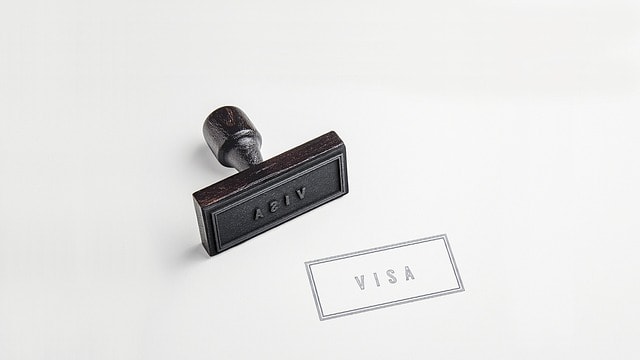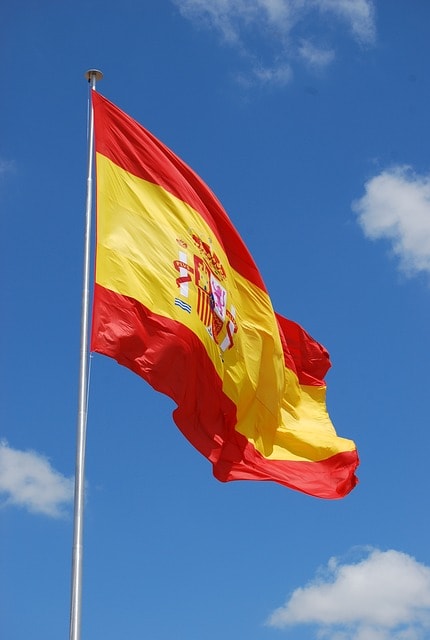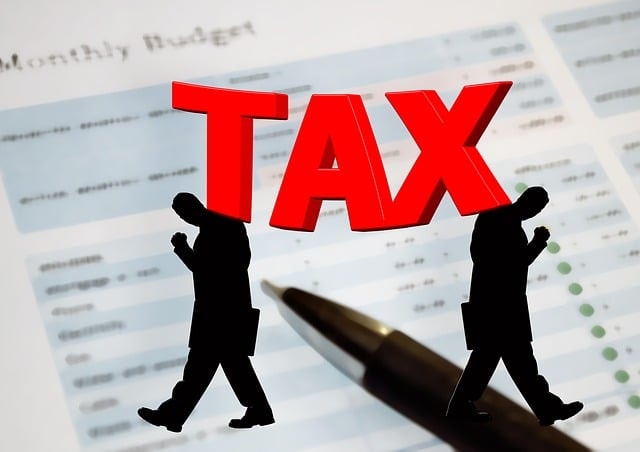
How to Move to Spain without a Golden Visa
Spain has long been a favorite destination for expats, offering a unique blend of modern infrastructure, deep cultural heritage, and an enviable Mediterranean lifestyle. Known for its sunny climate, vibrant festivals, and world-class cuisine, the country attracts retirees, families, and young professionals alike.
Despite recent changes to immigration laws, such as the termination of the Golden Visa in Spain, there are still many viable options for relocating. From the Spanish non-lucrative visa to the Digital Nomad Visa Spain, including the new digital nomad visa, individuals seeking residency in Spain can explore alternative pathways tailored to their needs. Another option is the non lucrative residency visa, which is designed for individuals who wish to reside in Spain without engaging in any economic or professional activities.
If you are asking, “Can I retire to Spain from the UK?” or “What are the new rules for residency in Spain?” this guide will provide detailed answers.
This guide delves into the Digital Nomad Visa requirements, the Spain retirement visa and other opportunities such as the Beckham Law Spain. We also address key considerations like how much tax you pay in Spain and the role of forex brokers to ensure a smooth relocation process.
Article Summary

Are you wondering how to move to Spain without a Golden Visa? Despite the termination of the Golden Visa in Spain, there are still many viable pathways for expats seeking residency. This guide explores alternative options like the Spanish non-lucrative visa and the Digital Nomad Visa Spain (Spain digital nomad visa), which cater to retirees, remote workers, and financially independent individuals. For those looking for a long-term solution, the permanent residency visa offers a pathway to reside in Spain indefinitely after fulfilling certain requirements.
For those considering retirement, the Retirement Visa Spain offers an excellent pathway, supported by financial advantages under the Beckham Law Spain. Understanding the financial requirements, such as how much money you need to move to Spain, is essential to ensuring a smooth transition.
Additionally, managing financial transactions during relocation is simplified with the help of forex brokers, who facilitate competitive and secure currency exchanges for property purchases and living expenses. With comprehensive insights into these residency options and practical advice, this guide provides everything you need to successfully start your new life in Spain.
Key Takeaways

Navigating the process of how to move to Spain without a Golden Visa can seem complex, but with the right guidance, it’s achievable. Here are the key points to remember:
Explore Alternative Visas: Viable options include the Spanish non-lucrative visa, Digital Nomad Visa Spain, Spain’s digital nomad visa, and the Retirement Visa Spain for those financially prepared.
Leverage the Beckham Law: Expats can benefit from the Beckham Law Spain, which offers tax advantages for high earners and retirees.
Understand Financial Requirements: Calculate how much money you need to meet the criteria for your chosen visa, whether it’s the Retirement Visa Spain or the Spanish non-lucrative visa.
Use Forex Brokers for Financial Efficiency: Simplify currency exchanges with forex brokers to secure better rates and smooth financial transactions.
Stay Informed About Regulations: Familiarize yourself with new rules for residency in Spain and other relevant legal frameworks to ensure compliance.
With these takeaways in mind, you’re well-equipped to begin your relocation journey and enjoy everything Spain has to offer.
What is the Spanish Golden Visa?

The Spanish Golden Visa was a residency-by-investment program introduced in 2013 to attract foreign investment and boost Spain’s economy. It allowed non-EU nationals to gain Spanish residency by making qualifying investments in the country. Popular investment routes included:
-
Purchasing real estate worth at least €500,000.
-
Contributing to Spanish public debt.
-
Investing in Spanish companies through stocks and shares.
This visa granted the right to live and work in Spain and provided family members with residency rights, making it a popular choice among affluent individuals worldwide.
However, in November 2024, the Spanish government announced the full termination of the program, effective from January 2025. While applications submitted before the cutoff date are still being processed under the existing framework, new residency permits are no longer granted under the Golden Visa in Spain.
Why is the Spanish Golden Visa coming to an end?

The termination of the Golden Visa in Spain stems from concerns over its impact on the housing market and broader economic implications. The Spanish government began addressing these issues in early 2024:
Real Estate Inflation: The Golden Visa’s real estate investment route was linked to surging property prices, making housing unaffordable for local residents.
Focus on Sustainability: Spanish policymakers aim to prioritize sustainable and inclusive economic growth over investment-driven residency.
By November 2024, the decision to abolish the entire program was finalized. While this marks the end of one pathway, it opens doors to other residency options tailored to diverse needs, such as the Spanish non-lucrative visa, Digital Nomad Visa Spain, and the Retirement Visa Spain.
Aspiring expats should explore these alternatives to find the best fit for their relocation goals.
Can People Move to Spain Without a Spanish Golden Visa?
The short answer is yes! Despite the end of the Spanish Golden Visa, there are still many viable pathways for expats to relocate to Spain. Several alternative visa options remain available, each catering to different needs and circumstances:
Popular Visa Options for Expats Moving to Spain:
-
Non-Lucrative Visa
-
Digital Nomad Visa
-
Work Visa
-
Self-Employed Visa
-
Student Visa
-
Family Reunification Visa
-
Entrepreneur Visa
-
Spain Remote Work Visa
Non-Lucrative Visa in Spain

A popular option is the Non-Lucrative Visa (NLV), or non lucrative residency visa, which allows non-EU citizens to live in Spain without engaging in professional or economic activities. This visa is particularly suitable for retirees or individuals and families who can financially support themselves independently.
Key Requirements for the Non-Lucrative Visa
Proof of Financial Means:
Applicants must demonstrate sufficient funds to sustain themselves and their dependents. In 2024, this requirement equaled 400% of the IPREM annually, or around €30,000 for main applicants, plus an additional €6,500 to €7,500 per dependent.
Health Insurance:
Comprehensive private health insurance from a Spanish provider is mandatory.
No Criminal Record:
A clean criminal record from the last five years is required.
Medical Certificate:
Applicants must prove they do not have diseases that could pose public health risks.
Proof of Accommodation:
Evidence of property ownership or a rental agreement in Spain is needed.
Applications are submitted at the Spanish consulate in the applicant’s home country, with approval typically taking 1 to 3 months.
Digital Nomad Visa in Spain

The Digital Nomad Visa (DNV) is designed for non-EU citizens working remotely for companies or clients outside of Spain. The digital nomad visa application process involves submitting various documents, including proof of employment and financial stability. Introduced under Spain’s Startup Act in 2023, it supports the growing trend of remote work and attracts international talent.
Key Requirements for the Digital Nomad Visa
Employment & Business Criteria:
Applicants must work remotely for non-Spanish companies or clients, though up to 20% of income can come from Spanish sources.
Financial Evidence:
Applicants must show minimum earnings of 100% of the IPREM, roughly €2,400 per month in 2024.
Professional Experience:
Proof of three years of relevant work experience or academic qualifications is required.
Health Insurance & Clean Criminal Record:
Comprehensive health coverage and a clean criminal record are mandatory.
Processing times for this visa range from 20 days to a few months.
Work Visa in Spain

The Work Visa is aimed at non-EU residents who have secured a formal job offer from a Spanish employer. This visa allows individuals to live and work legally in Spain while contributing to the local labor market.
Key Requirements for the Work Visa
Job Offer:
A formal job offer from a Spanish employer compliant with labor laws.
Work Contract:
A signed work contract specifying employment terms, salary, and job role.
Qualifications:
Proof of qualifications or relevant work experience for the role.
The employer usually applies for work authorization on behalf of the employee, after which the applicant submits their visa application to a Spanish consulate.
Self-Employed Visa in Spain

The Self-Employed Visa (Autonomo Visa) is designed for non-EU residents wishing to start a business or work as freelancers in Spain.
Key Requirements for the Self-Employed Visa
Business or Freelance Plan:
A detailed business plan outlining the nature of the work, financial projections, and contributions to the Spanish economy.
Proof of Funds:
Evidence of sufficient savings or projected income to support oneself and the business.
Compliance with Regulations:
Registration with the Spanish Tax Agency and Social Security System is required.
Processing times typically range from 3 to 4 months.
Student Visa in Spain

The Student Visa allows non-EU citizens to stay in Spain for full-time studies, research, or internships at accredited institutions.
Key Requirements for the Student Visa
Acceptance Letter:
Proof of enrollment in a recognized Spanish educational institution.
Financial Support:
Evidence of funds to cover living expenses, generally tied to the IPREM.
Accommodation Proof:
A rental contract or confirmation of student housing arrangements.
Processing times vary but usually take 1 to 2 months.
Family Reunification Visa in Spain

The Family Reunification Visa allows non-EU residents in Spain to bring immediate family members to live with them.
Key Requirements for the Family Reunification Visa
Sponsor Eligibility:
The sponsor must hold a valid residence permit and meet income requirements.
Family Relationship:
Proof of relationship with the applicant, such as marriage or birth certificates.
Housing Requirements:
Evidence of adequate accommodation for the family.
Entrepreneur Visa in Spain

The Entrepreneur Visa caters to individuals establishing innovative businesses in Spain.
Key Requirements for the Entrepreneur Visa
Innovative Business Idea:
The venture must be innovative and contribute to the economy through technology or job creation.
Business Plan:
A detailed plan including financial projections and market analysis.
Applications are reviewed for economic and innovative viability by Spanish authorities.
What is the Beckham Law?

In the context of global tax uncertainty, particularly in the United Kingdom, the Beckham Law Spain has emerged as a significant incentive for expats seeking residency. Beyond Spain’s gorgeous climate and cultural allure, this unique tax regime offers substantial financial benefits.
How Does It Attract Expats to Spain?

The Beckham Law, established in 2005, aims to attract foreign investment and skilled professionals to Spain. Named after footballer David Beckham, one of the first high-profile individuals to utilize it, the law provides a favorable tax regime for qualifying expats.
Key Benefits of the Beckham Law
Exemption of Global Income:
Expats are taxed only on their Spanish-sourced income, exempting worldwide income such as foreign investments, property rentals abroad, or overseas earnings.
Flat Tax Rate:
Spanish-sourced income is taxed at a flat rate of 24%, significantly lower than standard rates for residents.
Duration:
The regime applies for up to six years, making it an attractive short-term option for professionals and retirees.
Eligibility for Digital Nomads:
The Beckham Law complements the Digital Nomad Visa Spain, enabling remote workers to enjoy reduced tax burdens.
Eligibility Criteria for the Beckham Law
Work Relocation:
The applicant must relocate to Spain for work purposes, either as an employee or a director of a company.
Exclusion of Self-Employed:
Most self-employed professionals are not eligible unless they qualify under specific visa types, such as the Digital Nomad Visa.
Non-Residency Requirement:
The applicant must not have been a Spanish tax resident for the previous 10 years.
The Beckham Law Spain has made moving to Spain an attractive prospect for professionals and retirees alike. Combined with options like the Retirement Visa Spain and the Digital Nomad Visa Spain, it remains a compelling reason to consider residency in Spain.
How Much Money Do You Need to Move to Spain?

The financial requirements for relocating to Spain vary depending on the visa type and individual circumstances. Understanding how much money you need to move to Spain is critical for a smooth transition. Here’s an overview:
Non-Lucrative Visa Requirements
For those applying for the Spanish non-lucrative visa, applicants must demonstrate financial independence. The minimum income requirement is 400% of the IPREM (Indicador Público de Renta de Efectos Múltiples) annually. As of 2024, this amounts to approximately €30,000 for the main applicant, with an additional €6,500 to €7,500 per dependent.
Digital Nomad Visa Requirements
The Digital Nomad Visa Spain, part of the new spain digital nomad visas, has slightly lower financial thresholds. Applicants must prove monthly earnings equivalent to 100% of the IPREM, approximately €2,400 per month, making it more accessible for remote workers.
Retirement Visa Requirements
For retirees considering the Retirement Visa Spain, the financial criteria align closely with the non-lucrative visa. Ensuring a steady income source, such as pensions or investments, is crucial.
Additional Costs to Consider
Healthcare:
Private health insurance is mandatory for most visa types, and costs can vary based on coverage and provider.
Accommodation:
Applicants must provide proof of housing, whether through property ownership or a rental agreement.
Processing Fees:
Each visa application includes processing fees, which differ depending on the visa category.
By calculating these costs carefully and planning accordingly, prospective expats can ensure a successful relocation to Spain.
Role of Forex Brokers in Moving to Spain

When planning your relocation to Spain, one crucial aspect to consider is managing your finances, particularly currency exchange. Whether you’re purchasing property, paying relocation expenses, or setting up your financial base, understanding the importance of forex brokers can significantly streamline the process.
Why Forex Brokers Are Essential for Expats

When relocating to Spain, managing your finances effectively is a critical step, especially for large transactions such as property purchases or regular financial transfers. This is where forex brokers come into play, providing cost-efficient and secure currency exchange services tailored to the needs of expats.
Competitive Exchange Rates:
Forex brokers offer better exchange rates compared to traditional banks, saving you substantial amounts on large transactions such as property purchases.
Secure Transactions:
Reputable forex brokers provide secure platforms for transferring money internationally, ensuring your funds are safe during the relocation process.
Customizable Solutions:
Brokers cater to specific financial needs, offering tools like rate alerts and forward contracts to lock in favorable exchange rates.
Common Uses of Forex Brokers for Relocation
Forex brokers play a vital role in managing the financial complexities of relocating to Spain. From large-scale transactions like property purchases to regular transfers for living expenses, they simplify and optimize currency exchanges for expats.
Buying Property:
Large transactions for real estate require efficient currency exchange to minimize costs and delays.
Regular Transfers:
For retirees moving to Spain under a Retirement Visa, forex brokers can assist with monthly pension transfers at reduced fees.
Setting Up Businesses:
Entrepreneurs relocating under the Entrepreneur Visa can benefit from seamless international payments facilitated by forex brokers.
By integrating forex services into your relocation plan, you can make your financial transition to Spain smoother and more cost-effective.
Professional Guidance on How to Move to Spain Without a Golden Visa

Relocating to Spain involves navigating complex visa requirements, financial planning, and compliance with local regulations. Seeking professional advice ensures that your move is both successful and stress-free.
How Professional Services Can Help:
Visa Application Support:
Experts guide you through the nuances of visas such as the Spanish Non-Lucrative Visa or Digital Nomad Visa Spain. This includes attending an appointment at a local Spanish embassy or consulate to submit the necessary documentation.
Financial Planning:
Advisors help calculate how much money you need to move to Spain, ensuring you meet all financial criteria.
Tax Efficiency:
Understanding the Beckham Law Spain and other tax benefits can optimize your finances as an expat.
By leveraging professional guidance, you can confidently navigate the journey of moving to Spain.
Frequently Asked Questions: How to Move To Spain Without a Golden Visa

Moving to Spain without a Golden Visa raises several questions for prospective expats. This section provides clear and concise answers to the most commonly asked questions, ensuring you have the information you need to plan your move confidently.
Can I move to Spain without a Golden Visa?
Yes! Spain offers alternative pathways such as the Non-Lucrative Visa, Digital Nomad Visa, Spanish digital nomad visa, and Retirement Visa Spain.
How much money do I need to move to Spain?
The financial requirements vary depending on your chosen visa. For example, the Non-Lucrative Visa requires an annual income of around €30,000 for the main applicant. Additionally, a valid passport is required for all visa applications.
What is the Beckham Law, and who qualifies?
The Beckham Law Spain is a tax regime for expats, allowing taxation only on Spanish-sourced income. Applicants should also be aware of the visa fee, which typically amounts to around €80. It applies to professionals relocating for work and certain visa holders like Digital Nomads.
Can forex brokers save money on property purchases?
Absolutely. Forex brokers offer competitive exchange rates and secure transactions, making them invaluable for large purchases like real estate.
Conclusion & Call to Action

How to Move to Spain Without a Golden Visa
Relocating to Spain without a Golden Visa is not only possible but also offers diverse opportunities for expats. With pathways like the Spanish Non-Lucrative Visa, Digital Nomad Visa, and Retirement Visa Spain, coupled with tax benefits under the Beckham Law Spain, your dream of living in Spain can become a reality.
Ready to start your journey?
To ensure a seamless move, consider professional guidance and utilize forex services for cost-efficient financial management. Take the first step toward your new Mediterranean life today.
Contact Us

Get Support for Your Move to Spain
At Advice for Expats, we provide comprehensive assistance for those relocating to Spain without a Golden Visa. Our services include expert guidance on visa selection, financial planning, property searches, and legal compliance. Additionally, we offer specialized forex services to help you manage currency exchanges efficiently and wealth management solutions to ensure your financial stability in Spain.
Take the first step toward living in Spain confidently and securely.
Contact us today for your free consultation:
📞 Call: +350 5600 5757
📧 Email: connect@adviceforexpats.com
Useful Resources

Useful sources:
- Official Spanish Government Immigration Portal: Comprehensive details on visas, residency, and work permits for non-EU citizens, including UK nationals relocating to Spain.
https://extranjeros.inclusion.gob.es - Spain’s Ministry of Health: The official portal for Spain’s healthcare system, offering details on accessing public healthcare and health insurance requirements.
https://www.mscbs.gob.es/ - Spanish Tax Agency (Agencia Tributaria): Official site of the Spanish tax authority, offering guidance on tax obligations for residents, including information on the Beckham Law.
https://sede.agenciatributaria.gob.es/ - Spain Consulate in the UK: Provides specific information for UK nationals about applying for visas and permits to relocate to Spain.
https://www.exteriores.gob.es/Consulados/LONDRES/en/Pages/index.aspx

